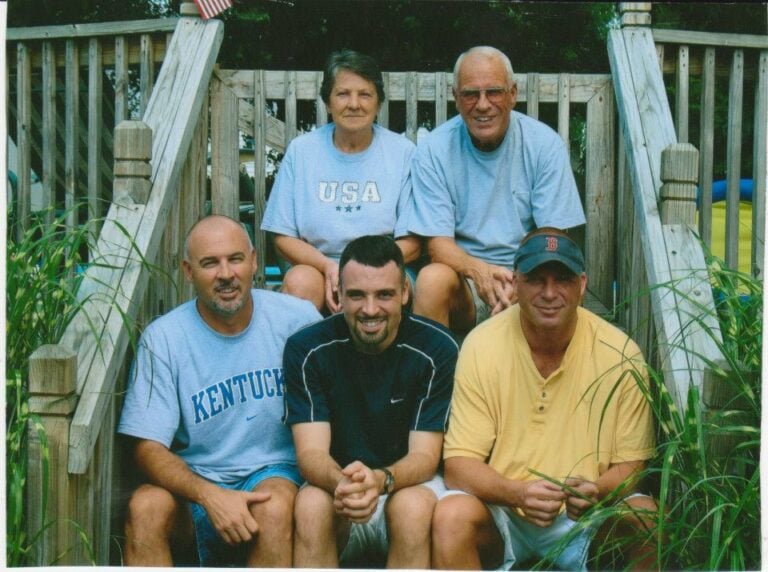The new chief executive officer of Transitions, Inc., has come full circle.
Jim Beiting, who replaced Mac McArthur in June, began his career in the behavioral health field working at Transitions 25 years ago.
“I worked here for about a year-and-a half and went on to do some other things, so it’s a little bit of a homecoming for me,” Beiting said. “I think my work is an extension of who I am. If people are in the behavioral health field it’s more than just a job.”
During his first stint with Transitions, Beiting worked a part-time, overnight shift at a treatment facility. He was hired full-time, but moved on to Talbert House and later to Bethesda Hospital in Cincinnati, where he worked first in outpatient treatment and later in managed care.
Beiting has a Masters of Social Work degree from the University of Kentucky and a bachelor’s degree from Northern Kentucky University.
He also worked at the YWCA in downtown Cincinnati and held senior management positions at mental health agencies in Butler County, Ohio. Most recently, he was the chief operations officer of Catholic Charities Southwest Ohio.

“One of the benefits of working at several different agencies is that I have been able to increase my knowledge in a lot of different areas of behavioral health,” Beiting said.
That includes, not only providing a service to the community, but developing a successful and sustainable business model, which is where Beiting says his administrative experience comes into play.
“The knock on most social service agencies is that they like to help people, but they don’t have a good understanding of what the bottom line is,” Beiting said. “Grants are fine, but if they go for a year, you hire a couple of people and the program is doing well, then the funding gets cut and you have to discontinue it. You have to have sustainability, that’s the key.”
Transitions is based in Bellevue and provides substance abuse treatment and related services, including assistance for those who cannot afford services elsewhere. It serves 3,300 people annually with a staff of about 125.
Beiting said this is a challenging time in the behavioral health field because Kentucky is going through a bit of a transition right now.
“The good news is that the expansion of Medicaid is providing a lot of people with health care that didn’t have it before,” Beiting said. “But with that change in environment for providers of what are now Medicaid-approved services, such as drug and alcohol treatment, we are put to task to bill Medicaid directly for services.”
It’s all part of responding to the changing needs of the community, which is the traditional role of service agencies. Beiting said a good example is the ongoing heroin epidemic, which has caused transitions to modify its treatment model.
“Heroin is a very dangerous drug and the addicted person whose drug of choice is heroin or opiates requires specialized care,” Beiting said. “That can be anything from medication to assist the treatment process, to a longer-term residential stay, to the ongoing concerns about the mortality rates. But it’s not hopeless, they can and do get better.”
Transitions offers detoxification, residential and outpatient treatment, and supportive housing. Its goal is to help individuals, families, and communities break the cycles of substance abuse, family abuse, violence, crime and poverty. At any given time, Transitions has about 400 people sleeping in a building at one of its 19 locations.
“It kind of keeps me awake at night,” Beiting said. “A big part of my job is to make sure we keep the lights on and the doors open. To make sure we have the resources, the revenue and the community relations to provide the services.”
Beiting has already targeted access to immediate treatment as a priority for Transitions and other facilities in the region.
“One of our goals is for people to call today and be able to get into treatment this afternoon” Beiting said. “One of the biggest struggles that we face is the access to treatment, and some of that is funding, some of it is just availability of space.”

Beiting admits he had some reservations about replacing McArthur, whose 25 years at Transitions equals the new leader’s entire tenure in the behavioral health field.
“I am following someone who really built Transitions from a very small agency into one of the largest providers of social services in Northern Kentucky,” Beiting said. “I was hired June 1, and I was fortunate to have some guidance from Mac for a few weeks after that, so it made getting into the day-to-day operations of the job that much easier.”
Beiting also has the benefit of leading an organization that has achieved stability under McArthur’s guidance.
“One of the keys that has helped Transitions through the years is that it has a very dedicated staff, so I walked into a place, with a smart, knowledgeable staff who carries the message on every day,” Beiting said. “If I’m the face of the agency, that’s all well and good, but the heartbeat and the pulse of the agency are the people who work here and are face-to-face with the clients we serve.”
A primary function of the Transitions board of directors is to hire a leader and it’s a role they have not had to fill for a very long time. When Beiting was selected earlier this year, board member Benjamin Dusing expressed confidence that they made the right choice.
“Jim has an impressive track record of success as a leader in the nonprofit world,” Dusing said. “We are convinced he can move Transitions forward at a time when addiction treatment organizations are facing more demand for their services but are faced with limited resources.”
Beiting, 55, said his primary goal is to reward that confidence by providing exemplary leadership.
“I’m hoping this is the last job I’ll have in this field and I hope to have it until I retire,” Beiting said. “I’m back where I started and I feel very comfortable here.”

















